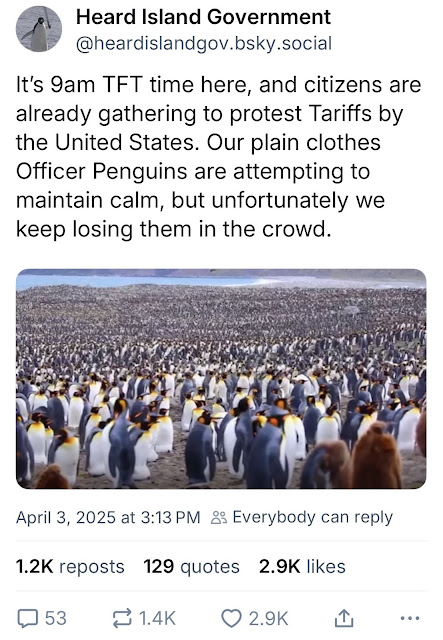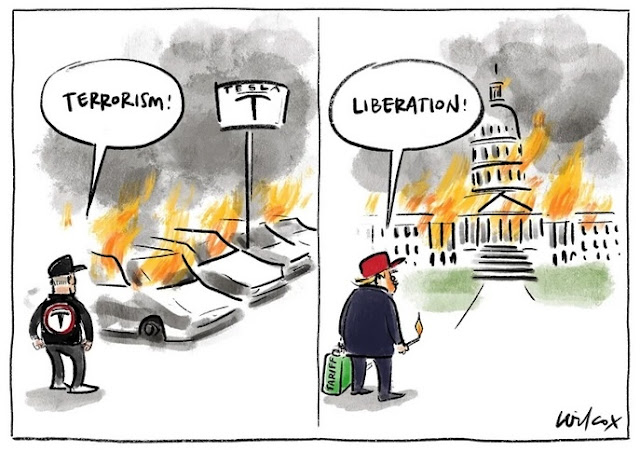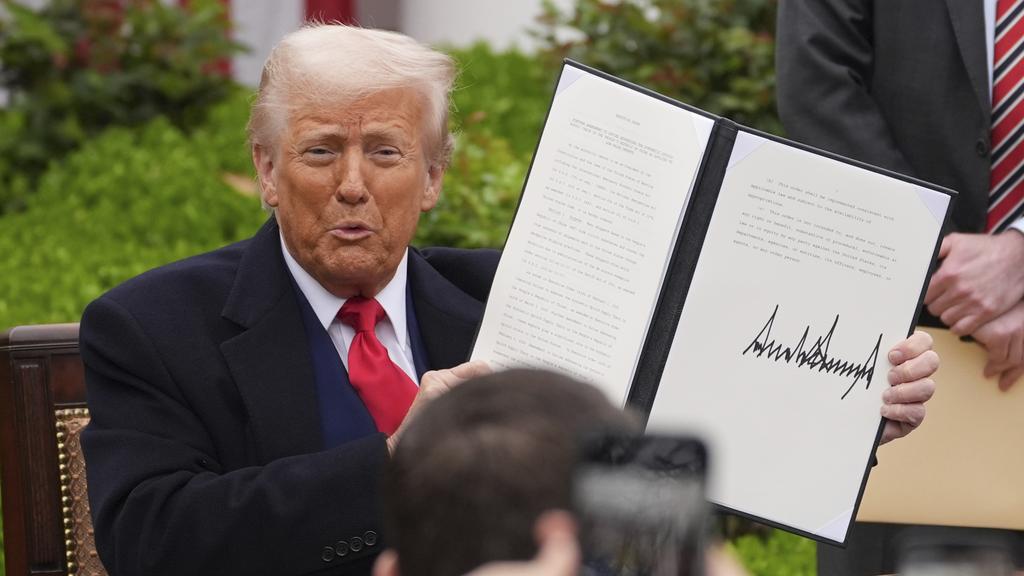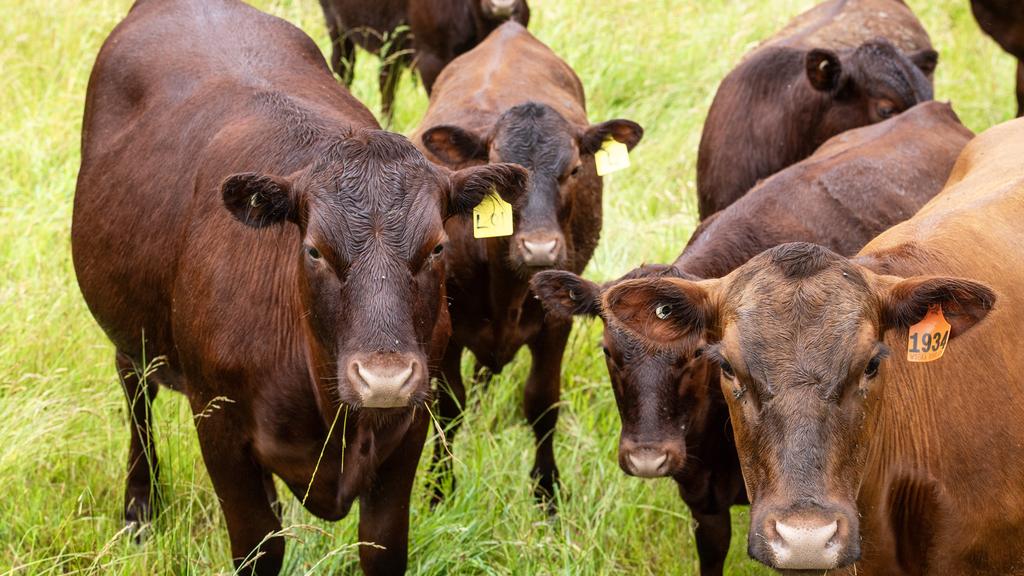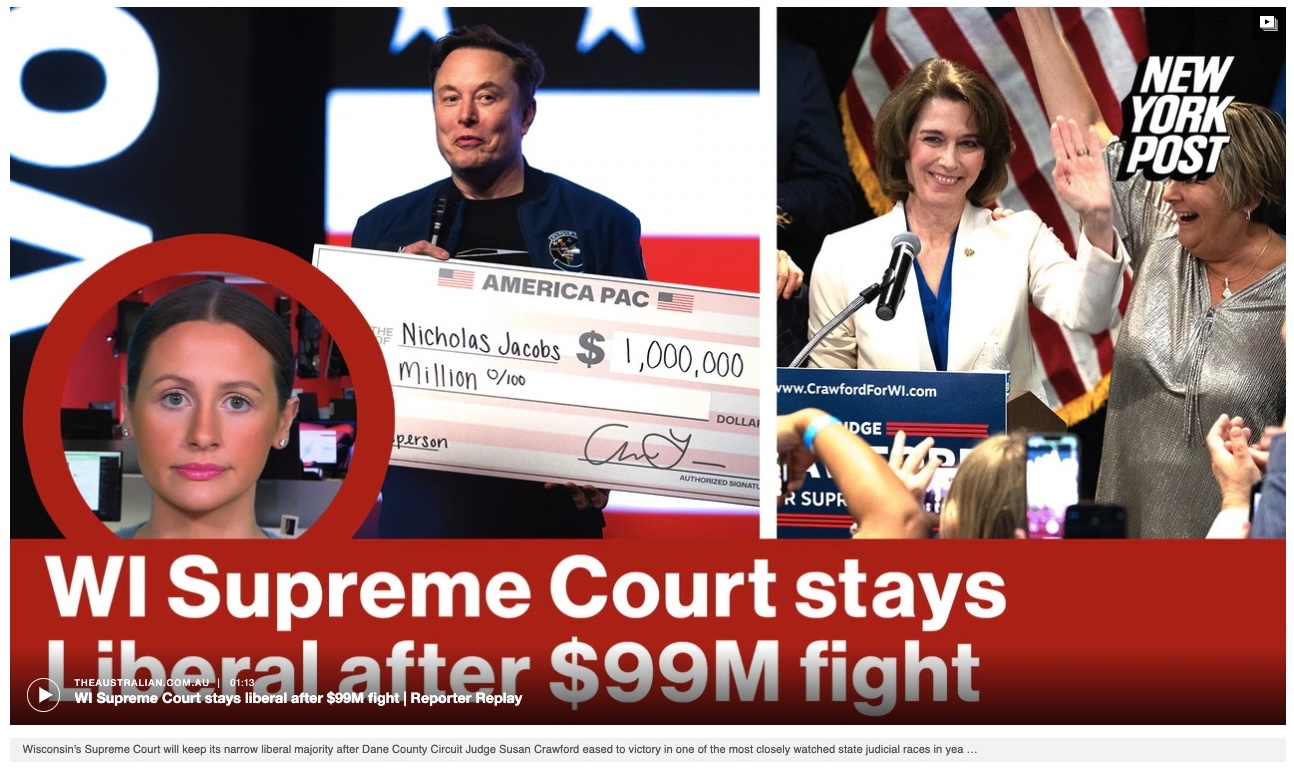Might as well start with the important stuff, as negotiations proceed apace ... what with krill an essential part of any deal ...
Over at the lizard Oz, the reptiles were in a flap, bothered and bewildered ...
It was up to the pond's heroes to set things right, and on the extreme far right, Killer of the IPA was top of the world ma, as anticipated by an eager pond correspondent...
Never mind Snappy Tom, back to basics, and luckily the pond had already covered Dame Groan, because this was a bumper day for three of the pond's hero reptiles, on a mission to set things right ...
It's true that the pond could have gone elsewhere ... the folks at the NY Times were also in a tizz ...
There was news at WaPo that Vlad the sociopathic impaler had managed to dodge a bullet ... (archive link) ...
It was the business of our hero reptiles to pour oil on troubled water, or perhaps if you prefer another metaphor, cover the top of the tank in kerosene to keep the mozzies under control ...
First came the Lynch mob, because he'd been granted the status of a huge splash on what passes for the alleged news section of the lizard Oz ...
Real story of Liberation Day was not economics – it was culture, He commands all he surveys. His opponents are reduced to long, windy speeches. Elite universities are chastened. Foreign nations plead for redress. Trump’s performance was hard to match. Peak Trump? Perhaps. Pure Trump? One hundred per cent.
In celebration of peak Trump, the reptiles provided an opening snap, US President Donald Trump delivers remarks on reciprocal tariffs during an event in the Rose Garden entitled ‘Make America Wealthy Again’.
Then it was on with the Lynch mob, avoiding economics, perhaps wise when you're completely clueless. How clueless?
In 2012, Barack Obama won re-election with a bumper sticker: BIN LADEN IS DEAD, GENERAL MOTORS IS ALIVE. In the Rose Garden, on Liberation Day, Donald Trump changed it: THE DEMOCRATS ARE DEAD, GM IS ALIVE.
Did the pond just read In 2012, Barack Obama won re-election with a bumper sticker?
Why if it's that easy, the pond might just whip up a bumper sticker and run in the current election ...
It didn't get any better ...
The President was in his element. He has rarely seemed happier. He read from his autocue and he riffed. Unionists, autoworkers, farmers, the builders and makers of things, applauded him. The defection of these men and women from the Democrats, who forgot how to speak for them, to Trump, who learned, completed the picture. An American politics realigned. A president imperious.
But we already know it's a circus run by the clowns, deep in imperious negotiations with penguins, and how did the next snap help? US President Donald Trump signs an executive order after delivering remarks on reciprocal tariffs.
The Lynch mob was in awe of the Cantaloupe Caligula's consistency ...
For a man with documented chaotic tendencies, Trump has maintained one pristine line throughout his adult life: foreigners are ripping us off. On Wednesday, Washington time, he announced America’s liberation from this racket. Its economic prospects are not certain – and probably quite gloomy. But its symbolic power is significant.
We saw a fulfilment of a world view that Trump has held for a long time. If you want to understand the genesis of Liberation Day read his interview for Playboy magazine in 1990, when he was 43.
Asked how he felt about Japan’s economic pre-eminence, Trump answered: “Japan gets almost 70 per cent of its oil from the Persian Gulf, relies on ships led back home by our destroyers, battleships, helicopters, frogmen.
“Then the Japanese sail home, where they give the oil to fuel their factories so that they can knock the hell out of General Motors, Chrysler and Ford. Their openly screwing us is a disgrace. Why aren’t they paying us? The Japanese cajole us, they bow to us, they tell us how great we are, and then they pick our pockets. We’re losing hundreds of billions of dollars a year while they laugh at our stupidity.”
The pond must note here that the Lynch mob was interrupted by an AV distraction featuring petulant Peta on Sky Noise down under, Sky News host Peta Credlin discusses the Labor Party's inability to get an exemption from the Trump administration's tariffs. "The PM refuses to even try and mend the fences here, via a trip to meet Trump in person to the White House, to me that's diplomacy 101, but because Trump is so unpredictable, Labor handlers are always scared to have any meeting between Trump and Albanese that they couldn't control, in front of the cameras," Ms Credlin said. "It's no wonder Anthony Albanese still has not been able to get that phone call with the president that he's asked for."
It's a dodgy business, trying to make political hay out of a messy business ...
Somebody has got to do it ... so on with the Lynch mob ...
Economists are busily scorning the logic of Trump’s reciprocal tariffs. These dismal scientists seem united that tariffs cannot restore his nation’s manufacturing base. But his command of the politics and culture of his trade war was the story here. And it is on this basis that we need to assess him.
At home, his 2½ months in office have revealed a remarkable activism that will be hard to sustain. He has issued more than 100 executive orders – to Joe Biden’s 37 at this same stage in his presidency. He retained two seats in congress on Tuesday. He faces a noisy but weak Democratic Party. But he is also, whether the MAGA movement admits it or not, a lame duck who cannot run again. The Republican nominee who will run in 2028 is waiting in the wings.
Abroad, Trump is attempting to redefine international relations so they contain no great friends and no permanent foes. The friends are often worse than the foes, Trump insisted. Rebalancing this in Australia’s favour may be beyond Kevin Rudd’s diplomatic genius. Even Israel was not immune to a 17 per cent tariff.
Globalists and what Trump called “outsourcers” are fretting. Their “rules-based order” has been hit hard since January 20. America is no longer willing to subsidise it. Mateship is no longer enough to get American taxpayers to fund the shortfall in Australian defence spending. Ditto the trans-Atlantic alliance. Its mystic chords of memory, forged on World War II battlefields, have been jarred in the MAGA revolution. Trump and JD Vance really don’t like the European Union. They now have a tariff policy to prove it.
"Globalists"? Ah, at least we know the company the Lynch mob prefers to keep ...Globalist has been used as a pejorative in right-wing and far-right politics, and in various conspiracy theories, notably antisemitic ones. In a 2014 YouTube video, far-right radio host and conspiracy theorist Alex Jones described the concept of globalism as a "global digital panopticon control system" which he considered to be "the total form of slavery
At this point the reptiles slipped in a snap of the real perpetrators, Barack Obama and Joe Biden in Greensboro, North Carolina, September, 2008.
The Lynch mob kept rabbiting on about culture ...
In defiance of Trump’s tariffs and threats, Canadians are buying guns and moving back to the left. And global markets have an effective way of calling foul on economic radicalism; ask Liz Truss. Japan experimented with a form of protectionism not dissimilar to Trump’s; its return was three decades of stagnation. Turns out, the Japanese picked their own pockets.
The real story of Liberation Day, despite appearances to the contrary, was not economics. It was culture. Four years ago, Joe Biden was lauded for starting a neo-New Deal. It fizzled. Identity politics, inflation, Afghanistan, a fentanyl epidemic, cognitive decline, lawfare and the beginnings of Trump 2.0 – this is how the Biden interregnum, in the Age of Trump, will be remembered.
The confidence of his Liberation Day address was a rebuff to the cultural dislocations of not just the Biden years but of a generation of failed foreign and economic policies, of both parties.
That blather about culture reminded the pond of the sort of culture the mango Mussolini was celebrating ...
At this point the Lynch mob tried a final rousing Trumpian climax ...
Timothy J. Lynch is professor of American politics at the University of Melbourne.
And so to Killer, who was remarkably sanguine in what the reptiles alleged was a four minute read ... Albanese owes Trump a debt of gratitude on tariffs, Amid the cacophony of ignorant rage over the US tariffs, another obvious though no less significant point has been overlooked: Trump repeatedly said he would prefer to rely more on tariffs and less on income tax.
Nothing to see here, nothing to worry about, scribbled Killer, “Most economists argue this huge new round of tariffs will be passed on into higher domestic prices for Americans in any case, so why is that any of our business?” writes Adam Creighton, as he was blessed with one of those corny, wretched AI collages the reptiles have taken to doing ...
Donald Trump, as he repeatedly promised throughout his presidential campaign, has announced tariffs of upward of at least 10 per cent on all imports into the US.
Imports from Australia will attract the equal lowest tariff of any country, 10 per cent, less than half the tariff that will apply to imports from Japan, India and the EU. Chinese goods will be taxed at more than 50 per cent. Australian beef exports will apparently even escape US tariffs entirely.
America is facing $US2 trillion ($3.19 trillion) deficits as far as the eye can see; it must either cut spending or lift taxes. Trump’s unilateral tariffs announced on Thursday will make significant inroads into that colossal gap, raising around $US700bn a year, according to The Wall Street Journal.
If we're going to quote from the WSJ, perhaps better to start with Trump's New Protectionist Age, Blowing up the world trading system has consequences that the President isn't advertising (archive link):
On a basic level, like any sales tax, it's regressive and will hurt the poor (and the MM's base) more than the well off ...
The reptiles preferred a more anodyne illustration ...US President Donald Trump delivers remarks on reciprocal tariffs.
Killer did his very best to soft soap the whole affair ...
“From 1789 to 1913, we were a tariff-backed nation and the US was proportionately the wealthiest it has ever been … then in 1913, for reasons unknown to mankind, they established the income tax,” the US President said, making an implicit argument about the relative merits of different taxes. Perhaps one that’s gone over our Prime Minister’s head!
It’s entirely the sovereign right of the US to decide how it raises revenue from economic activity that occurs within its jurisdiction. If the US, whose share of global GDP has halved to around 25 per cent of global GDP since World War II, wants to build an economic moat around itself, then so be it.
Australia prevents foreigners from buying established dwellings and accessing our subsidised public health and, quite reasonably, insists foreign workers pay Australian rates of income tax. Similarly, Australians pay US tax rates when conducting business in the US.
Trump often says tariff is “the most beautiful word in the dictionary”. But it is a wonder it’s in the dictionary at all, given the confusion caused. Tariffs are simply another type of tax, in this case on US importers, which are the only entities obliged to pay any of these new taxes to the US government. No Australian will pay a cent to the US government from these tariffs.
It’s not correct to say the US is putting tariffs on Australia or other countries; no one outside the US will pay a cent to the US Treasury as result of these new measures. To be sure, Australian and other exporters into the US may choose to lower the prices they charge US importers to partly offset the impact of the tariff, thereby seeking to remain competitive against locally produced alternatives.
For some reason the reptiles decided to drag in a comedian to do a Killer and reassure the mob, Comedian Alex Stein discusses how the Trump administration’s Liberation Day tariffs will affect the United States. “I’m sure there is going to be some short-term pain, then you read that Hyundai is going to build a $US20 billion factor in the United States to build cars”, Mr Stein told Sky News Digital Presenter Gabriella Power. “I think it is going to hurt in the short term and be better for the long term.”
Really? The best they have on offer to do sage economic advice and pump up the clown-run circus is another professional clown? Isn't he at a competitive advantage these days?
Whatever, it inspired Killer to another level of fearlessness ...
All taxes – whatever names they go under: customs, duties, levies – are bad in varying degrees, and there’s a strong argument that income tax (Australia’s favourite) is even more economically damaging than a general tariff, let alone the stamp duties Australia levies on property transactions at obscene levels.
Far be it for us to lecture the US on optimal taxation!
“Tariffs are a recipe for higher prices and slower growth right around the world,” said Treasurer Jim Chalmers, whose government has imposed industrial and energy policies that do just that.
Trump hopes tariffs will revive the emaciated US manufacturing sector, which began to shrink precipitously in the early 2000s as American firms moved operations offshore to lower cost jurisdictions. Trump is channelling an increasingly niche but longstanding view about the pre-eminence of manufacturing going back to Alexander Hamilton, who once wrote: “Not only the wealth, but the independence and security of a country, appear to be materially connected with the prosperity of manufactures.”
Such jobs will only return if businesses believe these new measures to be permanent, and if the tariff makes significant enough inroads into the cost advantage of manufacturing outside the US. But that’s far from clear, given US wages are among the highest in the world.
In any case, the long-term damage to the global economy may not be as severe as feared.
At this point, Killer dared to go where the fearful had already been, with a snap from the archive ...Herbert Hoover
It's worth remembering that Killer of the IPA is one of Gina's mob, and so it's his duty to ignore the WSJ, still yammering on ...
That was all nothing, mere verbiage, a mere speck of dust in the Buddha-like understanding of Killer...
Almost a hundred years later, the benchmark S & P500 index in New York fell by less than 3 per cent on futures markets after Trump’s announcement. The local ASX200 fall didn’t even breach 2 per cent, suggesting the long-term hit to growth from these measures isn’t so significant. The economics profession appears to be predicting serious economic disruption, but that same group has made a habit of being totally wrong about the economic outlook for years – think the global financial crisis and Covid burst of inflation.
The word tariff incites fear and loathing, but it is just another tax, one of many the US might need to increase if Washington refused to get spending under control.
Adam Creighton is chief economist at the Institute of Public Affairs.
Relax, it's just another tax ...Killer of the IPA, sorter of Covid and masks and vaccines, has spoken ...
And so to the hole in the bucket man, and wisely, he decided to keep his head down, and stay home in Government spending spree reflects narcissism of our age, It’s fine to blame leaders but fiscal discipline is simply impossible if voters don’t want it.
The reptiles called it a five minute read, and where Killer had gone back to Hoover and Smoot Hawley, our Henry trumped him by heading back to Gladstone.
But first a snap ... Opposition Leader Peter Dutton and Prime Minister Anthony Albanese.
The pond found the infallible Pope a more reassuring take on the duelling duo...
The pond proposes that today our Henry really nailed the First Law of Our Henry ...“There is no argument that cannot be bolstered by citing a long-deceased notable who had no direct knowledge or experience of the subject under debate.”
Things have changed a little since the days of Gladstone and empire, but not in our Henry's world view...
It is consequently unsurprising that even on the budget’s optimistic projections, we will be well into the 2030s before the Commonwealth balances its books.
Yet whatever Labor’s anxieties about the forthcoming election, being penalised for fiscal recklessness isn’t among them; it plainly believes that throwing money around is the key to electoral success. The opposition is scarcely better, fearful that promising a speedy return to surplus will raise awkward questions about spending cuts.
Assuming our politicians, for all their shortcomings, can read the public mood, one can only conclude that budgetary restraint is well and truly passé.
William Gladstone, whose successive periods as chancellor of the exchequer and then prime minister largely shaped modern notions of fiscal rectitude, must be rolling in his grave.
Having entered politics at a time of intense fiscal anxiety – by 1825, the Napoleonic Wars’ astronomic cost had propelled Britain’s public debt to 300 per cent of GDP – durably fixing the public finances was a defining goal of Gladstone’s extraordinarily lengthy career.
The outlook seemed dire. Already in the mid-18th century, when the public debt was barely one-eighth its 1825 level, David Hume predicted that it contained “the seeds of ruin”, as the taxes needed to finance interest payments would eviscerate the middle class, plunging Britain into a “grievous despotism”.
The reptiles encouraged our Henry in his Antediluvian anecdotes with snaps from the archives (cheep, cheep) ... William Ewart Gladstone, David Hume
The pond found it difficult to suppress a yawn ..
Meanwhile, radicals denounced deficit spending as the pillar of the “old corruption” that enriched the ruling oligarchy at workers’ expense.
Those pressures elicited the beginnings of a response. Particularly important was Edmund Burke’s “Economical Reform” legislation of 1782, which – by curtailing patronage and increasing the transparency of public accounts – started the process of reducing “that corrupt influence which takes away vigour from our arms, wisdom from our councils and every shadow of authority from the most vulnerable parts of our constitution”.
But Gladstone did not merely pursue Burke’s reforms; he elevated fiscal rectitude from being a matter of expediency into the touchstone of public morality.
In 1828, the Select Committee on Public Income and Expenditure had laid down the principle “that no government is justified in taking even the smallest sum of money from the people, unless a case can be clearly established that it will be productive of an essential advantage to them, and of one that cannot be obtained by a smaller sacrifice”.
There you have it in a nutshell ... the way to deal with current matters, Ergas style ...In 1828, the Select Committee on Public Income and Expenditure had laid down the principle ...
FFS, not even a hint of comic relief?
What was all this inane wandering back into the past in aid of?
The results of Gladstone’s incessant efforts at fiscal repair were momentous. Government expenditure fell from 15 per cent of GNP in 1830 to 9 per cent in 1880; in France, by contrast, it rose from 7 per cent to 18 per cent. By the period’s end, even GW Norman, a radical liberal, could conclude that the British got “a better return for their moderately just and equal taxes than any other European country”.
The reptiles gave the pond a clue by interrupting our Henry with an AV distraction, featuring petulant Peta on Sky Noise down under, bagging the government, Sky News host Peta Credlin says almost everything the Albanese government has done has made a “bad situation worse”. The government has announced tens of billions worth of policies which have been matched by the opposition in the lead up to the hotly contested election. “Every day now from Labor, there's yet another spending announcement in the hope they will bribe you with your own money,” Ms Credlin said. “Tomorrow night, the Treasurer will deliver a spendathon, vote-buying budget and the Opposition leader will respond on Thursday with a ferocious critique of three years of bad government.”
All the blather about Gladstone was our Henry's idea of how to give Albo's mob a good bagging ... because you know, Victorian England and empire, wot wot ...
Yet “with every increase of expenditure there grows up what may be termed ‘a spirit of expenditure’, a desire which, insensibly and unconsciously, affects the spirit of the people, of parliament, and perhaps even of those whose duty it is to submit the estimates to parliament”.
How was the “spirit of expenditure” to be exorcised? It was, in part, a question of leadership: of ensuring that no one became (or remained) chancellor who “makes popularity either his first consideration, or any consideration at all, in administering the public purse”.
Forgoing all self-promotion, the chancellor had to, by his “magisterial influence”, infuse the sense of economy into the entire public service, going from the mightiest “permanent officers that bear unobtrusive but effective sway in Whitehall” down to the lowliest “distributors of stamps”.
And it was also the chancellor’s task to constantly explain how and why the country’s finances, and the difficult choices they inevitably involved, were “at the root of English liberty”. Hence Gladstone’s magnificent speeches that, said a contemporary, “made thousands eager to follow the public balance-sheet, and the whole nation his audience”.
It is, however, questionable whether Gladstone could have been so successful, electorally and politically, had his values, shaped by evangelical Protestantism, not faithfully mirrored the broader population’s. At a time when, even in London, that den of sin and inequity, a third of adults were regular churchgoers, those values embodied the archetypal Victorian virtues: not least thrift, which was actively promoted by the ubiquitous Penny Banks that disseminated a culture of “making a choice” for “responsible saving”.
The reptiles helped out by slipping in a snap of Karl.
Finally an attempt at comedy, A demonstrator dressed as Karl Marx marches along with activists and supporters of Russia's left-wing parties and movements during a May Day rally in Moscow.
Sure it came from a 2018 May Day march, on file in Shutterstock, but it did suggest our Henry might eventually get around to the new millennium and the neew world order ...
Nope, not on your nellie ... the best that our Henry could do was bring his history lessons up to just after World War One ...
And little wonder too that he regarded establishing the immensely popular Post Office Savings Bank, which Karl Marx denounced as “a golden chain on which the government holds a large part of the working class”, as one of his three most important legislative achievements.
The Victorian virtues on which Gladstonian fiscal rectitude so heavily rested are now a thing of the past, replaced by the “virtue signalling” that is nothing more than a form of narcissism. Our leaders may not be up to the task; but is it unfair to suggest that, in the end, each epoch gets the fiscal leadership its moral calibre deserves?
The great economist Joseph Schumpeter, who learned that lesson the hard way when he served as Austria’s finance minister immediately after the First World War, put it best.
“The spirit of a people,” he wrote, “its cultural level, its social structure, the deeds its policy may prepare – all this and more is written in its fiscal history, stripped of all phrases. He who knows how to listen to its message here discerns the thunder of world history more clearly than anywhere else.”
It would be a pity if, on May 3, when Australians head to the polls, the only thunder was the catastrophic crash of a nation that has lost its way.












